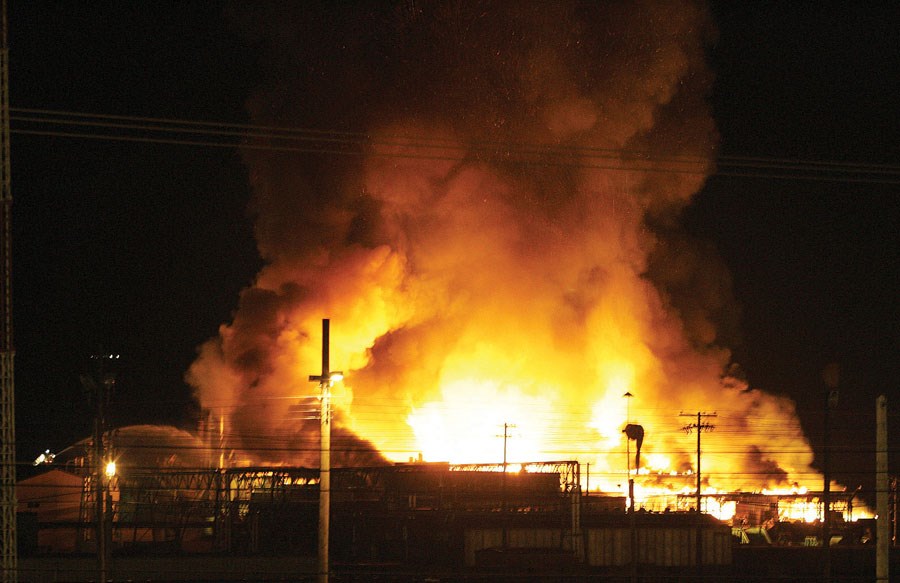RCMP took two-and-a-half days to decide no criminal offence was committed following the Lakeland Mills explosion, a coroner's inquest into the incident heard Thursday.
Prince George RCMP Sgt. Holly Lavin, the team commander for the case, said investigators relied on statements taken from 13 mill employees who had been in the sawmill when the blast occurred. as well as WorkSafe B.C. inspector Darren Beattie and Prince George Fire Rescue fire prevention officer Steve Feeney to reach the conclusion.
No paperwork was seized from Lakeland offices and no one in Lakeland management was interviewed, Lavin said when questioned by coroner's counsel John Orr.
"We didn't receive any information that would have led us to have to interview them," Lavin said.
The police investigation of the scene itself was done from the perimeter and from photos. "And it was determined that it was a low-level blast complicit with a dust explosion," Lavin said.
Lavin was assigned to the case the morning after the April 23, 2012 blast that led to the deaths of Alan Little and Glenn Roche, and left 22 others with injuries. The 13 employees were given a questionnaire similar to one RCMP used following the Jan. 20, 2012 explosion at Babine Forest Products near Burns Lake, in which two men were killed an another 20 injured.
Arson, criminal negligence and the so-called Westray amendment, in the Criminal Code since 2004 that states employers have a legal duty to take "reasonable steps" to prevent bodily harm to an employee while performing work, were considered during the investigation.
The scene was turned over to the coroner's office and WorkSafe B.C. and they were supplied with a written brief. Had WorkSafe come across information suggesting a crime had been committed, they would have notified the RCMP and the case would have been reopened, Lavin said.



